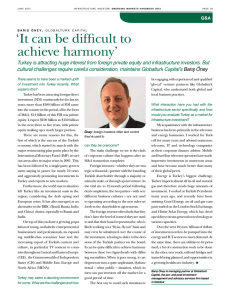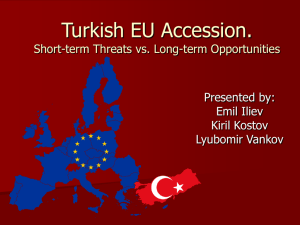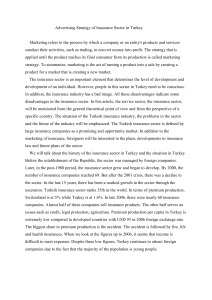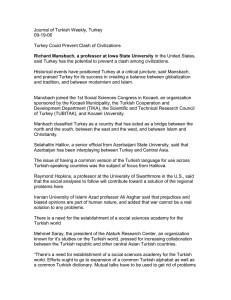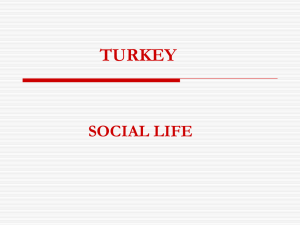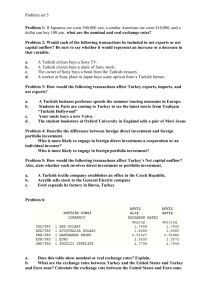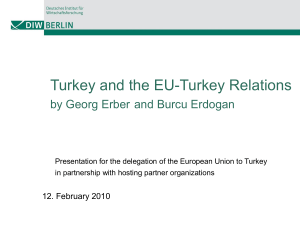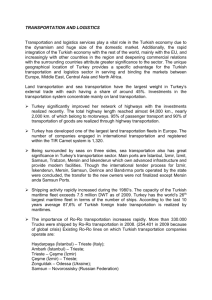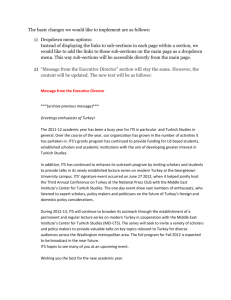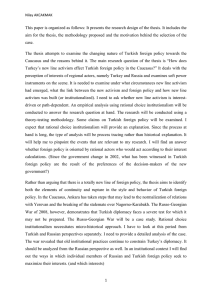Consumer Protection Law, Turkey
advertisement
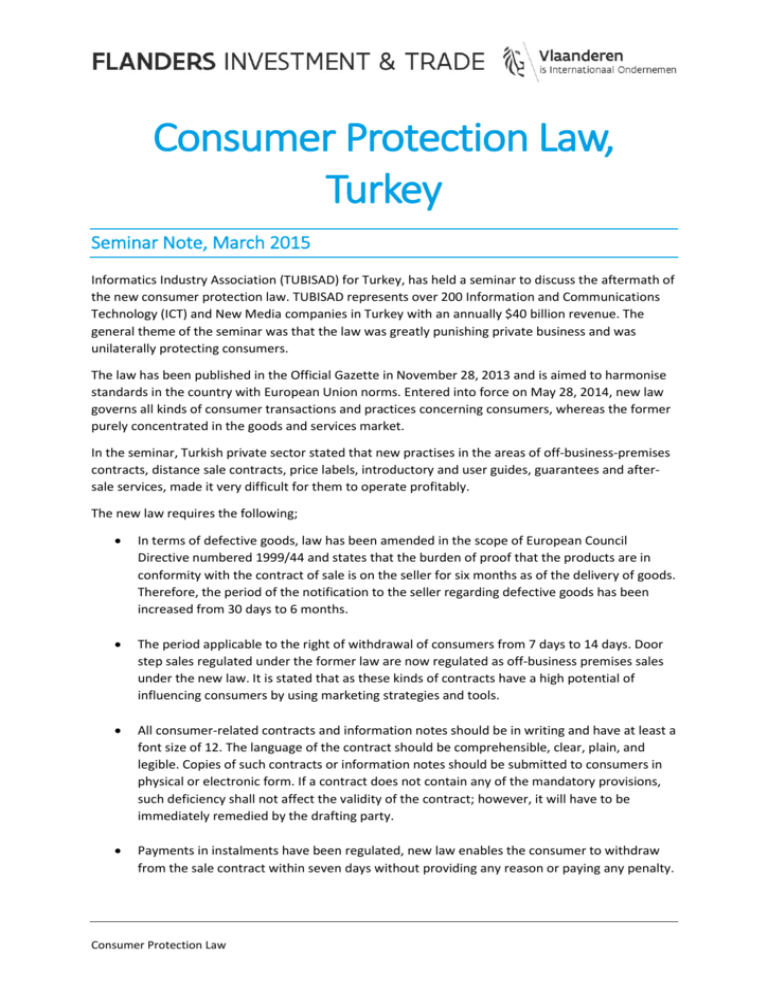
Consumer Protection Law, Turkey Seminar Note, March 2015 Informatics Industry Association (TUBISAD) for Turkey, has held a seminar to discuss the aftermath of the new consumer protection law. TUBISAD represents over 200 Information and Communications Technology (ICT) and New Media companies in Turkey with an annually $40 billion revenue. The general theme of the seminar was that the law was greatly punishing private business and was unilaterally protecting consumers. The law has been published in the Official Gazette in November 28, 2013 and is aimed to harmonise standards in the country with European Union norms. Entered into force on May 28, 2014, new law governs all kinds of consumer transactions and practices concerning consumers, whereas the former purely concentrated in the goods and services market. In the seminar, Turkish private sector stated that new practises in the areas of off-business-premises contracts, distance sale contracts, price labels, introductory and user guides, guarantees and aftersale services, made it very difficult for them to operate profitably. The new law requires the following; In terms of defective goods, law has been amended in the scope of European Council Directive numbered 1999/44 and states that the burden of proof that the products are in conformity with the contract of sale is on the seller for six months as of the delivery of goods. Therefore, the period of the notification to the seller regarding defective goods has been increased from 30 days to 6 months. The period applicable to the right of withdrawal of consumers from 7 days to 14 days. Door step sales regulated under the former law are now regulated as off-business premises sales under the new law. It is stated that as these kinds of contracts have a high potential of influencing consumers by using marketing strategies and tools. All consumer-related contracts and information notes should be in writing and have at least a font size of 12. The language of the contract should be comprehensible, clear, plain, and legible. Copies of such contracts or information notes should be submitted to consumers in physical or electronic form. If a contract does not contain any of the mandatory provisions, such deficiency shall not affect the validity of the contract; however, it will have to be immediately remedied by the drafting party. Payments in instalments have been regulated, new law enables the consumer to withdraw from the sale contract within seven days without providing any reason or paying any penalty. Consumer Protection Law Turkish private sector has the following concerns in terms of the new procedures. 2 In the consumer arbitration courts, interests of the private businesses are not represented. TUBISAD should do more to voice the concerns of the businesses. Explaining the new law to importers are very difficult even to EU companies. Some aspects such as the battery wearing off should be excluded from guarantees, as the current law is unworkable. The decisions made by arbitration committees in cities outside of Istanbul are not professional. The devices that were given during repair of the customer’s original products usually end up staying with the customer. The law does not state how the company can receive back these devices. Registration of mobile devices to Turkey takes a long time. Mobile phones takes 20 days to register to the Turkish Ministry, this is a very long and cumbersome process. Bringing spare parts for technical products is a very difficult process.








